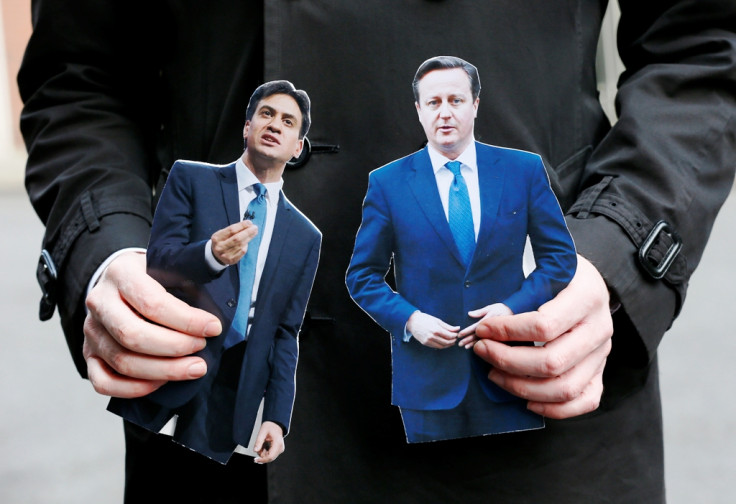Election 2015: Deutsche Bank says Labour Party most likely to form government

A leading Deutsche Bank economist said he expects the Labour Party could most likely form the next government.
With the Labour Party and Conservatives neck-and-neck, Deutsche Bank's chief economist George Buckley said in a research note that all polls indicate a hung parliament. This means a three-party coalition will be required to form a government, with the Labour party expected to win support from the Scottish National Party.
The SNP, which has drawn a sharp increase in support following last year's independence referendum, is expected to get around 47% of Scottish votes this election compared to 20% in the 2010 election, according to polls over the past month.
The Labour Party may get around 27% of the vote share as compared to 42% in the 2010 elections in Scotland, polls show.
The outcome of such a mandate for Labour could result in increased taxes, less austerity and a likely slower reduction in deficit, Reuters reported.
Deutsche Bank warned that if a Conservative-led government is formed, it will press ahead for an EU referendum by 2017 - something that the vast majority of businesses are vehemently opposed to.
© Copyright IBTimes 2024. All rights reserved.






